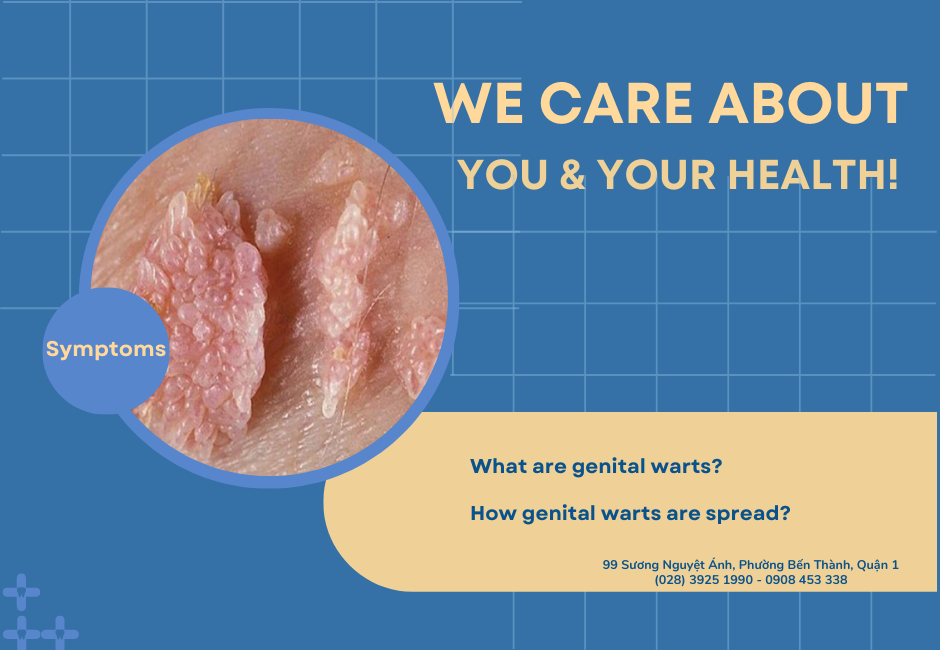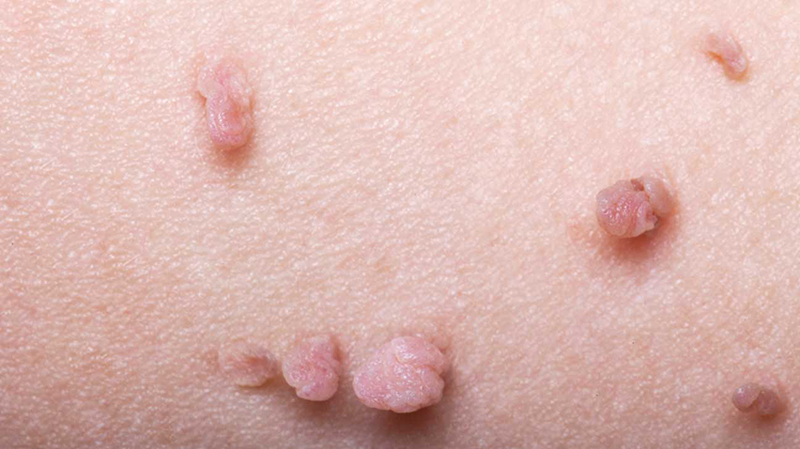
What are genital warts?
Genital warts are small warty lumps that grow in genital skin, anus and mouth. They are caused by the human papillomavirus (HPV), a common sexually transmitted infection (STI). Although there are over a hundred different types of HPV, most genital warts are caused by HPV 6 and HPV 11. Warts on the fingers or soles of the feet are caused by different HPVs which do not spread to the genital skin. Some HPVs can cause cancer, including cervical cancer in women. However, the HPVs that cause genital warts rarely cause cancer.

Genital Warts
How genital warts are spread?
- You can get genital warts by having sexual contact with someone who has HPV. This includes having skin contact with their genital or anal skin or by having vaginal, anal or oral sex. In rare cases, a mother may pass the virus to her baby during childbirth.
- Warts cannot be caught from hugging, sharing baths, towels, sheets, toilet seats or swimming pools.
- You may have HPV but have no warts. This means that you could pass the virus to your partner without knowing it.
Signs and symptoms.
- Genital warts look like warts that appear on other parts of the body. These growths can look like bumps or cauliflower. They are small or large, skin-colored and there may be one wart or many warts. They can appear on or around the genitals, around the anus or in urinary meatus. In rare cases, warts can appear in the mouth.
- Most lesions are symptomless, however associated symptoms can include itching, bleeding and dyspareunia.
- The warts can show up weeks or months after you’ve had sex with an infected partner.
Treating genital warts.
Genital warts can be treated, but the infection can’t be cured. The symptoms of genital warts can come and go. Different treatments are available, and your doctor will discuss which is best for you.
Treatments include:
- Skin cream
- Cryotherapy
- Electrocautery
- Laser treatment
If you are pregnant, or think you might be, tell your doctor. They will choose a treatment that won’t affect your baby.
Will the warts come back?
It is quite common for warts to come back, usually in the first three months after they have disappeared. In most cases this happens because there is still HPV in the skin. People who smoke or drink alcohol are more likely to see their warts come back. However, over time most people will get rid of HPV and will not develop new warts.
Should I tell my partner?
Yes. You may have infected your partner, or they may have infected you without knowing it. They may have developed genital warts and need treatment. Even when you have no warts, you can still pass on the virus.
Protecting yourself and others
- Use a condom. Using a condom every time you have sex reduces your risk of getting genital warts and other STIs. Although using a condom will give some protection, the virus can be passed on to any area not covered by a condom or where the skin comes into contact with warts.
- Get vaccinated. In Vietnam, there is a vaccine against 9 types of HPV, which are important types and are the main cause of genital warts and HPV-related cancers. The vaccine is given to both men and women, and is still effective when given to people who have had sex, even if they have been infected with HPV. People who have been infected with one type of HPV before should get vaccinated to prevent infection of other dangerous types of HPV. Besides, in some cases, it may actually work as a treatment, clearing warts in people who are already infected.